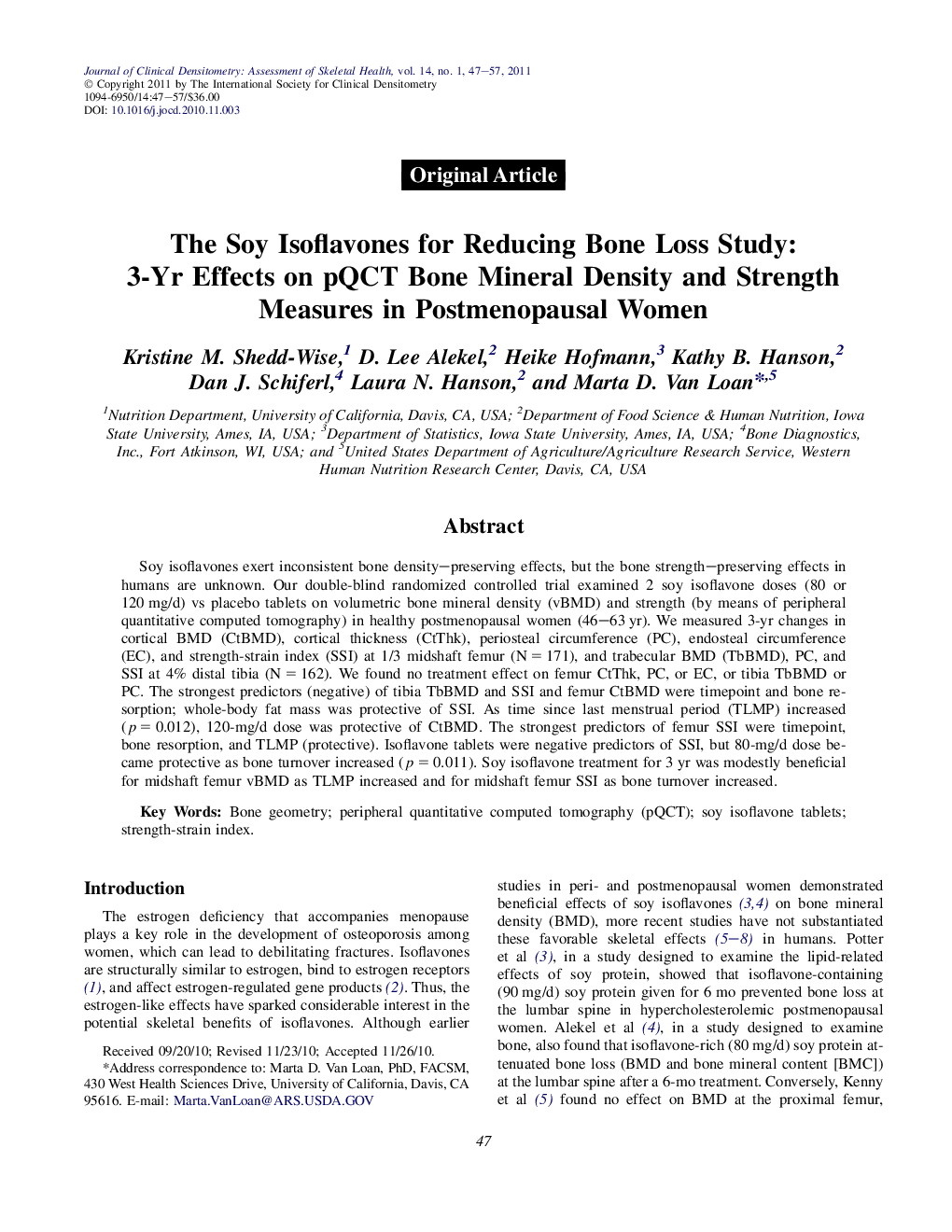| Article ID | Journal | Published Year | Pages | File Type |
|---|---|---|---|---|
| 3270987 | Journal of Clinical Densitometry | 2011 | 11 Pages |
Abstract
Soy isoflavones exert inconsistent bone density-preserving effects, but the bone strength-preserving effects in humans are unknown. Our double-blind randomized controlled trial examined 2 soy isoflavone doses (80 or 120 mg/d) vs placebo tablets on volumetric bone mineral density (vBMD) and strength (by means of peripheral quantitative computed tomography) in healthy postmenopausal women (46-63 yr). We measured 3-yr changes in cortical BMD (CtBMD), cortical thickness (CtThk), periosteal circumference (PC), endosteal circumference (EC), and strength-strain index (SSI) at 1/3 midshaft femur (N = 171), and trabecular BMD (TbBMD), PC, and SSI at 4% distal tibia (N = 162). We found no treatment effect on femur CtThk, PC, or EC, or tibia TbBMD or PC. The strongest predictors (negative) of tibia TbBMD and SSI and femur CtBMD were timepoint and bone resorption; whole-body fat mass was protective of SSI. As time since last menstrual period (TLMP) increased (p = 0.012), 120-mg/d dose was protective of CtBMD. The strongest predictors of femur SSI were timepoint, bone resorption, and TLMP (protective). Isoflavone tablets were negative predictors of SSI, but 80-mg/d dose became protective as bone turnover increased (p = 0.011). Soy isoflavone treatment for 3 yr was modestly beneficial for midshaft femur vBMD as TLMP increased and for midshaft femur SSI as bone turnover increased.
Related Topics
Health Sciences
Medicine and Dentistry
Endocrinology, Diabetes and Metabolism
Authors
Kristine M. Shedd-Wise, D. Lee Alekel, Heike Hofmann, Kathy B. Hanson, Dan J. Schiferl, Laura N. Hanson, Marta D. Van Loan,
